June 21, 2025 | 01:22 GMT +7
June 21, 2025 | 01:22 GMT +7
Hotline: 0913.378.918
June 21, 2025 | 01:22 GMT +7
Hotline: 0913.378.918
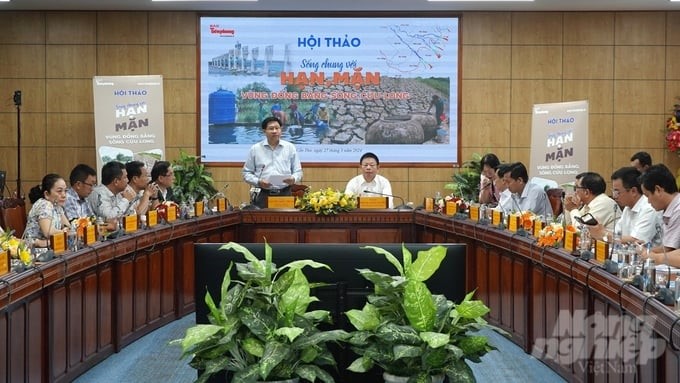
Central and local specialized agencies, experts, and businesses jointly discuss solutions to live with drought and salinity in the Mekong Delta. Photo: Kim Anh.
On March 27, in Can Tho city, Tien Phong Newspaper coordinated with Can Tho University to organize a workshop on "Living with Drought and Salinity in the Mekong Delta."
According to information from Mr. Le Ngoc Quyen, Director of the Southern Regional Hydrometeorological Center, the total flow from the upstream of the Mekong River to the Mekong Delta since the beginning of January 2024 has been lower than the average for many years.
The saltwater intrusion situation in 2024 also occurred early. Since mid-November, saltwater intrusion has appeared and gone deep into the interior field. In particular, the salinity session from March 8 to 13 had a salinity level of 4 g/l and penetrated 40–50 km deep, even deeper in some places.
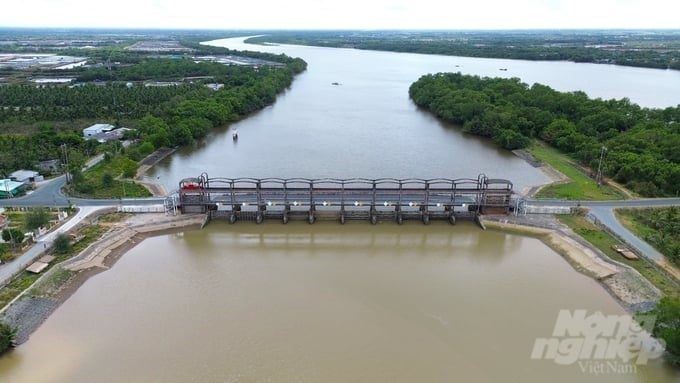
By the end of May, the Mekong Delta will experience three more sessions of highly increased saltwater intrusion. Photo: Kim Anh.
Mr. Quyen commented that, up to this point, the level of saltwater intrusion in the two provinces of Tien Giang and Ben Tre has been higher than in 2016. In other coastal provinces, such as Soc Trang, Long An, Tra Vinh, Bac Lieu, and Ca Mau, saltwater intrusion has happened commonly, with the salinity level being higher than the average for many years but lower than in 2016 and 2020.
By the end of March, the Mekong Delta provinces will finish harvesting the winter-spring rice crop and begin sowing for the 2024 summer-autumn crop. Facing the severe and complicated developments of drought and saltwater intrusion in the remaining months of the dry season, the leader of the Southern Regional Hydrometeorological Center warned that the time to reduce salinity will prolong. Along with that, some canals in the Mekong Delta are drying up, so the subsidence situation will continue to occur in some provinces of the Southern Hau River.

About 31 hectares of late winter-spring rice sown outside the recommendations of Long Phu district, Soc Trang province, were damaged during this drought and salinity session. Photo: Kim Anh.
Therefore, the work of monitoring, observing, and forecasting by the hydrometeorological agency will be more focused, proactive, and closer in order to have continuous, early, and timely warning information.
Ca Mau is the only locality in the 13 Mekong Delta provinces that does not have an additional source of fresh water. Drought and salinity in recent years and in 2024 have caused the locality to be increasingly affected by domestic and production water sources. Subsidence has caused difficulty in transporting goods. According to the Provincial Sub-Department of Water Resources, as of March 25, Ca Mau had subsidence occurring in 131 canals with 569 points.
Mr. Do Minh Dien, Deputy Director of the Ca Mau Provincial Sub-Department of Water Resources, cited that after harvesting the last winter-spring rice crop, the canals in the area dried up, so waterway traffic was difficult, causing an increase in transportation costs.
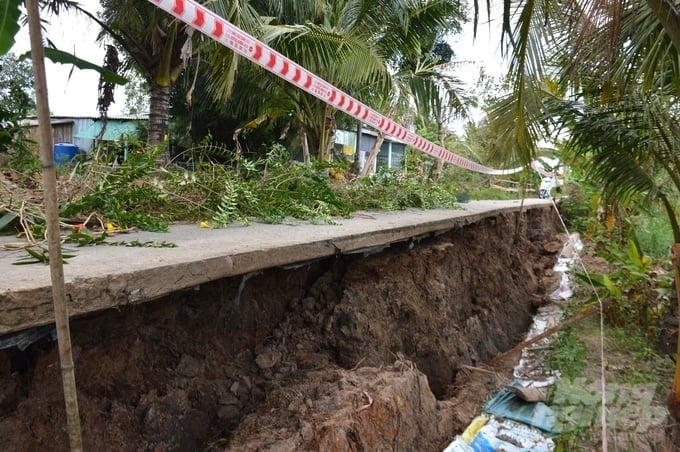
The subsidence situation is causing many difficulties for Ca Mau province. Photo: Kim Anh.
The locality’s immediate solution is to strengthen recommendations for people to use water sparingly, monitor the water level in the canals, and immediately notify the local government for solutions when the water level is low to an alarming level. At the same time, reduce vehicle tonnage from 8 tons to 5 tons on some roads and canal embankments to avoid landslides.
Located at the end of the Mekong River, every year Ben Tre province is heavily affected by drought, salinity, and landslides. Therefore, people in the province will almost adapt to drought and salinity conditions in 2024.
Based on the forecast information given, Mr. Bui Van Tham, Deputy Director of the Ben Tre Department of Agriculture and Rural Development, said that the locality has set two basic goals during this drought and salinity session, which are to protect domestic water sources and to ensure water supply for fruit-growing areas with high economic value. However, if the rainy season comes late and drought and salinity prolong, the resistance of rivers and people's water reserves are at risk of being heavily affected.
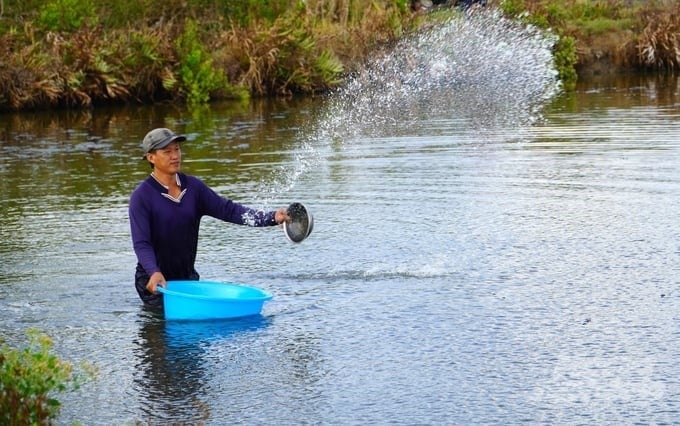
Ensuring domestic and production water sources for people in the coming time is very important. Photo: Kim Anh.
Mr. Tham also acknowledged that the problem of saltwater intrusion affecting domestic water sources has not yet had a thorough solution.
According to statistics from the Southern Institute of Water Resources Research, up to this point, saltwater intrusion has caused damage to 31 hectares of late winter-spring rice outside the recommendations of Long Phu district (Soc Trang province). About 20,000 hectares of winter-spring rice in the ripening and flowering stages are at risk of being affected. Regarding domestic water, it is forecast that about 50,500 households in the Mekong Delta will be affected in the coming time.
From now until the end of May, the Mekong Delta region will experience three more sessions of highly increased saltwater intrusion. Specifically, session 1 is from April 8–14; session 2 falls on April 23–28; and session 3 is from May 6–12. Of which, the highest intrusion will occur in session 1, with a salinity level of 4 g/l at estuaries.
Translated by Huyen Vu Thu
![Turning wind and rain into action: [10] Advancing accessible climate services for farmers](https://t.ex-cdn.com/nongnghiepmoitruong.vn/608w/files/linhnhp/2025/06/20/1911-z6704423696987_15fd32ffc26d590d204d520c9dac6786-nongnghiep-161854.jpg)
(VAN) Not only does it help farmers 'avoid droughts and rains,' the development of agricultural climate services also enhances their ability to proactively adapt to a rapidly changing climate.
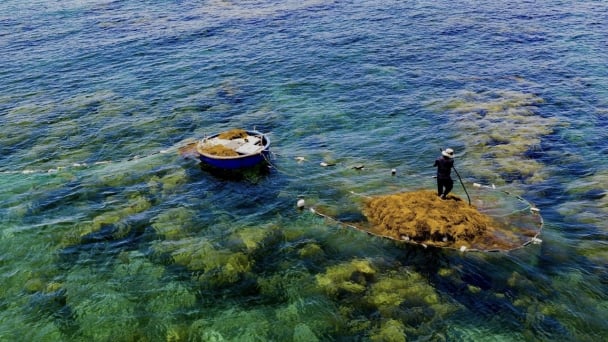
(VAN) With international assistance, the harvesting of sargassum seaweed in Quang Ngai has become increasingly regulated, thereby safeguarding marine life and ensuring the stability of coastal communities' livelihoods.
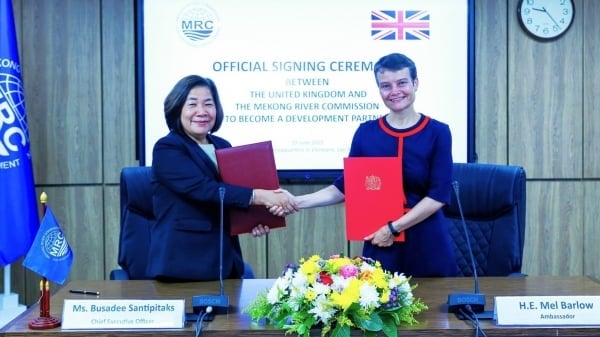
(VAN) On June 19, the United Kingdom officially became a Development Partner of the Mekong River Commission.

(VAN) Biodiversity is being threatened by traditional remedies made from wildlife. Traditional medicine and humans must change to live in harmony with nature.

(VAN) Agrifood investment and finance solutions for people and the planet.

(VAN) Microplastic contamination has become pervasive in seafood, posing unprecedented challenges for food safety and marine ecosystems.
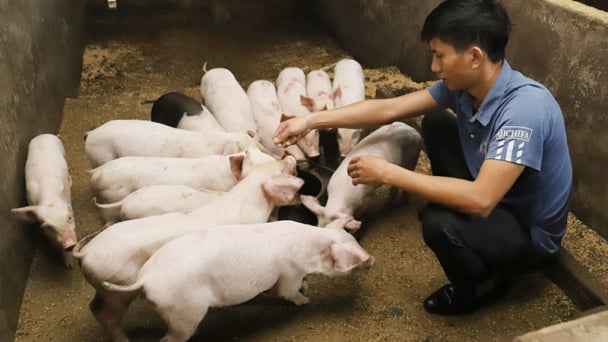
(VAN) Proactively using vaccines, combined with transport control and enhanced surveillance, is the only viable path toward biosecure and sustainable livestock production in Vietnam.